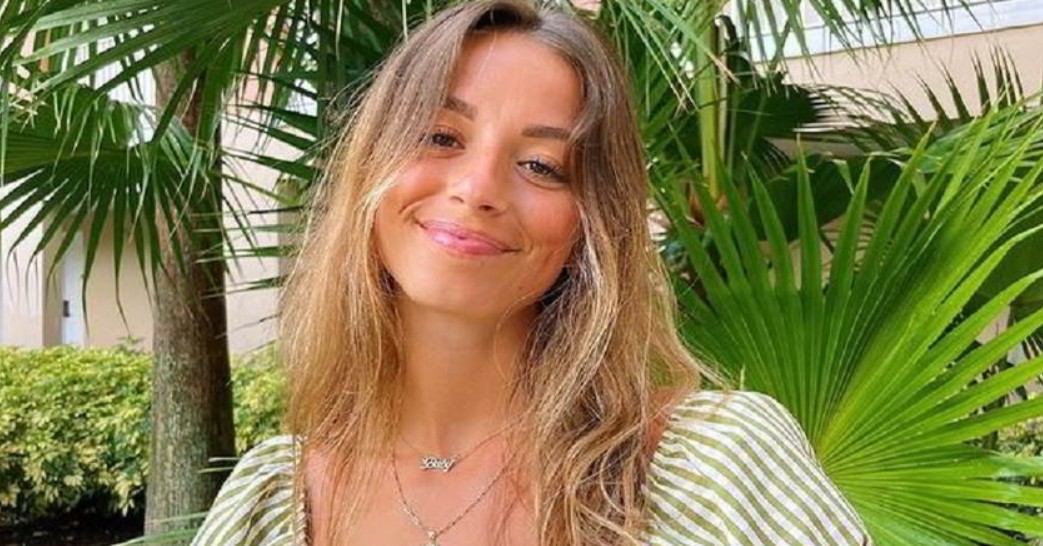Sadie McKenna Video and Ethical Considerations
Sadie McKenna, once recognized primarily for her rising career in the entertainment industry, has recently attracted widespread media attention for reasons unrelated to her professional accomplishments. As an actress and singer, McKenna built a substantial following, earning praise for her performances in popular television series and music albums. However, her life took an unforeseen turn when a private video involving her was leaked online, triggering a controversy that overshadowed her artistic achievements.

The leak not only violated McKenna’s personal privacy but also significantly affected her career and public image. As the video spread across social media platforms, the backlash was immediate and intense. The incident raised serious concerns about the security of personal data and the consequences of its unauthorized dissemination. Both critics and supporters voiced their opinions online some condemning the invasion of privacy, while others unfairly scrutinized McKenna’s personal life.
This article examines the repercussions of such privacy violations, highlighting the emotional and professional turmoil faced by individuals like McKenna. It also explores potential measures that could help prevent similar incidents in the digital age. By analyzing this case, the discussion extends to broader issues surrounding digital privacy and the responsibilities of social media platforms in protecting user content.
Contents
Impact of the Video Leak
The immediate aftermath of the video leak was profoundly distressing for Sadie McKenna. Emotionally, she experienced intense anxiety and stress, as her most private moments were exposed without her consent. The violation of her privacy led her to temporarily withdraw from public life, allowing herself time to process the psychological toll of the incident. According to statements from her management team, McKenna has been receiving professional support to help navigate this challenging period and maintain her mental health.
Public reaction to McKenna’s situation was mixed. While many fans and fellow celebrities expressed solidarity and called for respect for her privacy, a significant portion of the public responded with backlash. Some engaged in victim-blaming, questioning her choices and character rather than condemning the invasion of her privacy. This divide underscores ongoing issues regarding the treatment of women in the media, particularly in cases involving the non-consensual sharing of personal content.
Sadie McKenna’s uncensored video is drawing widespread attention online
Professionally, the consequences were immediate and tangible. McKenna’s career momentum came to a sudden halt: several planned projects were postponed indefinitely, and some endorsement deals were withdrawn as sponsors and collaborators approached the controversy with caution. Public appearances were canceled, and upcoming performances were delayed, shifting attention from her professional achievements to a personal crisis.
The impact extended beyond lost opportunities, posing long-term risks to McKenna’s reputation and potential future prospects within the entertainment industry. The incident serves as a stark reminder of the vulnerabilities inherent to public life and the serious career consequences that privacy violations can carry in the digital era.
Background
Sadie McKenna quickly established herself as a rising star in the entertainment industry, captivating audiences with her dynamic acting and soulful singing. Prior to the recent controversy, she had earned recognition as a versatile performer, excelling in both dramatic and comedic roles. Her most notable work includes a leading role in a critically acclaimed television drama, which garnered multiple award nominations. Beyond her professional achievements, McKenna was also admired for her philanthropic efforts, actively supporting charities focused on children’s education and mental health awareness.
Known for her down-to-earth and approachable persona, McKenna often shared glimpses of her personal life on social media, fostering a loyal fan base. However, this connection with the public was abruptly disrupted when a private video involving her was leaked. The video first appeared on an anonymous content-sharing platform before rapidly spreading across other social media sites. While the origin of the leak remains unclear, speculation suggests that it may have been shared without McKenna’s consent by someone within her personal circle.
Legal and Ethical Considerations
In response to the leak, McKenna and her legal team acted swiftly, aiming to identify the culprit and pursue justice through legal channels. They filed a lawsuit against the unidentified individuals responsible for distributing the video under laws that criminalize non-consensual sharing of images. Efforts were also made to remove the video from all platforms, invoking both copyright protections and privacy rights. These legal actions sought not only to limit the immediate damage but also to establish a precedent for addressing similar violations in the future.

At the heart of the situation are ethical issues surrounding privacy, consent, and the responsibilities of those who distribute digital content. Unauthorized sharing of private images constitutes a serious breach of ethical principles, showing disregard for consent and the dignity of the individual involved. The incident has further intensified debates about digital rights and the obligations of social media platforms to monitor content and protect user data.
Similar legal precedents include cases such as the 2014 iCloud leaks involving Jennifer Lawrence, where private photos were distributed without consent. Outcomes from these cases have led to stricter enforcement against cybercrimes and have influenced the creation of new legislation designed to safeguard digital privacy.
Preventive Measures and Recommendations
Preventing incidents like this requires proactive strategies from both individuals and digital platforms. For individuals, maintaining strong digital security is essential. This includes using complex passwords, enabling two-factor authentication, and exercising caution when sharing personal information online. Regularly reviewing and updating privacy settings on social media, as well as understanding the terms of service, can further help protect one’s digital footprint.
Digital platforms also have a critical role to play. They must implement stricter data protection policies and maintain robust systems capable of detecting and blocking unauthorized sharing of sensitive content. Investing in technology that can automatically flag and remove non-consensual images before they spread widely could be transformative. Platforms should also collaborate closely with law enforcement to identify and hold perpetrators accountable.
Education is another key element in prevention. Raising awareness about the consequences of sharing private content without consent should begin early, integrated into school curriculums and community programs. Public campaigns can also help shift cultural attitudes toward a more respectful understanding of consent and privacy in the digital era.
The case of Sadie McKenna highlights the urgent need for comprehensive measures to safeguard individuals against privacy violations in an increasingly digital world. A multi-faceted approach including legal remedies, technological safeguards, and educational initiatives is essential to effectively address these challenges. Beyond the immediate impact on McKenna’s personal and professional life, the incident has sparked broader conversations about digital rights and privacy.
As we navigate the complexities of the digital age, it is vital for both individuals and institutions to prioritize privacy rights. Ensuring that everyone has the tools and knowledge to protect themselves online is key to preventing violations. Creating a digital environment where privacy is respected and upheld is a shared responsibility. This approach emphasizes not only reacting to incidents after they occur but also actively preventing them through awareness, education, and strong legal protections.
Breaking News -Stephanie Watson Video and Unexpected Reactions
Yordanis Cobos-Martinez Full Video Kill Chandra Nagamallaiah in Dallas Motel Beheading
Charlie Kirk Shooting Video on Reddit, X/Twitter and Viral Close Up
Kayla and Peach Original Video Full on Instagram
Lily Lang Video Sparks Debate on Online Harassment
Bianca Censori Grammys Video Divides Opinions on Her Style
Bri and Vale Twitter Video Goes Viral and Wrong Reasons
